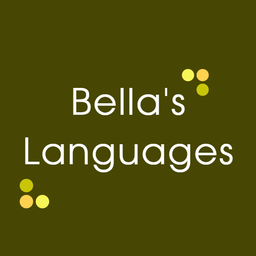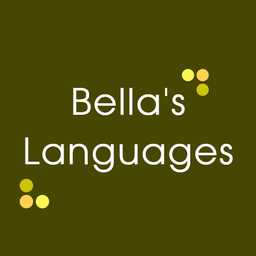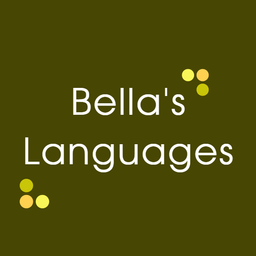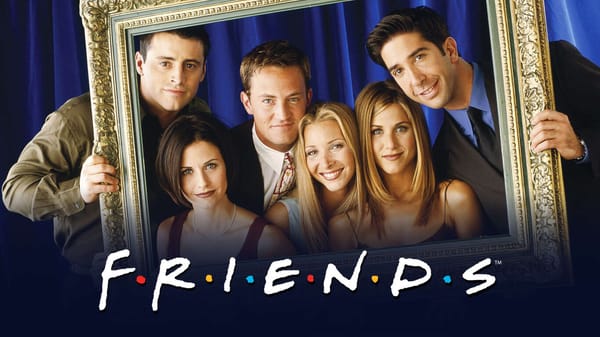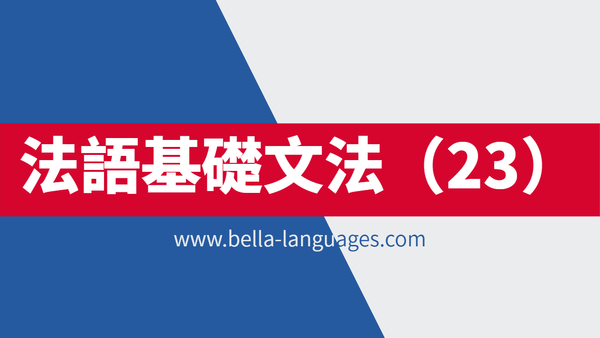Young Sheldon📺小谢尔顿 Part 2
收看影片:
跟着《少年谢尔顿》学英语口语:看美剧也能提升英语表达力!
原声音频:
逐句精讲:

Now, listen…
你听我说……
listen... 常用的引导语,带有转移注意力、强调接下来的话很重要的语气。类似表达还有:"Look" "Listen up" "Let me tell you something..."。中文可以对应:“你听我说啊”、“先听我讲”这种语气。
Am I in trouble?
我惹麻烦了吗?
Am I in trouble? 经典口语句式,表示“我是不是惹麻烦了?”
in trouble 是固定搭配,意思是“惹上麻烦、陷入困境”。
🎐 拓展例句:
- You're gonna be in big trouble. 你要惹大麻烦了。
You're not gonna make it in this school if you keep ratting people out.
如果你老是去告状,在这学校是混不下去的。
not gonna make it = not going to make it 的缩写形式,口语中非常常见。意思是“混不下去”、“坚持不住”、“完不成”。
make it 在某个方面取得成功或达到目标
🎐 拓展例句:
- I’m not gonna make it! 我撑不住了!
- You’ll never make it as a singer. 你不可能当成歌手的。
ratting people out 是个俚语,意思是“告密、打小报告”。
rat (someone) out to tell somebody in authority about something wrong that somebody else has done. 出卖某人,打某人小报告。
🎐 拓展例句:
- He ratted me out to the teacher. 他去跟老师打了我的小报告。
But they were breaking the grooming codes and the dress codes.
可是他们违反了仪容规定,还有穿着规定啊。
grooming codes & dress codes 都是学校、公司等场合对外貌穿着的规范。
grooming codes 通常指仪容仪表(比如头发、胡须、指甲等)。
dress code 是穿着规定(比如制服、不能穿拖鞋、不能露肩等)。
🎐 词汇拓展:
- violate the dress code(违反着装规定)
- violate the school grooming policy(违反学校仪容政策)
I saw one boy with a T-shirt that said..."Bite me."
我看到有个男生穿了件写着“咬我啊”的T恤。
Bite me. 是一句俚语,略带挑衅意味,常用于表示不屑、不爽或反抗权威。直译是“咬我啊”,但其实意思更像是 “关你屁事”、“去你的吧”、“你能拿我怎样?”
Yeah. That-that's terrible.
嗯,对啊……那、那真的挺糟的。

Sheldon, let me tell you a little story.
Sheldon,我跟你讲个小故事。
Let me tell you a little story. 非常地道的故事开头表达。带有一点“让我娓娓道来”的感觉。
Did you ever wonder why we moved from Galveston to Medford?
你有没有想过,为什么我们从加尔维斯顿搬到了梅德福?
Did you ever wonder why... 引发思考或设置情境,类似于中文的“你有没有想过……”
wonder /ˈwʌndər/ 是“思考、好奇”的意思。
🎐 类似表达:
- Have you ever wondered why...?(现在完成时,稍微正式)
- You ever think about why...?(更口语随意)
No. I tend to wonder about the bigger questions.
没有。我一般都在想更宏大的问题。
tend to 表示“倾向于”,是个基础词组。
🎐 拓展例句:
- I tend to overthink things. 我总是想太多。
wonder about 想知道,对……感到疑惑
the bigger questions 是 Sheldon 式幽默,意思是他不关心日常琐事,而关心“宇宙真理”这种宏大议题。
✅ 小知识点:这是人物性格的体现方式——用“偏离常规”的回答突出角色特点。
Okay, well, here's why.
好吧,那我来告诉你。
Here's why. 承接句,表示“这就是原因”。可用于引出接下来要讲的道理、解释等等。
🎐 拓展例句:
- You shouldn't do that. Here's why... 你不该那么做,我来说说原因。
Your dad had a real good coaching job and I saw some grown-ups breaking rules.
你爸那时候有一份很不错的教练工作,可是我发现有些大人做了违反规定的事。
real good 是口语中常见的强化用法,虽然语法上 “really good” 更标准,但口语中 “real good” 更常用。
coaching job:教练的职位。
🎎 其他职业表达:
- teaching job(教师职位)
- sales job(销售工作)
grown-ups 是小孩对 “大人” 的说法,比 “adults” 更口语、柔和。
breaking rules 是 “行为上犯规”。
What'd they do?
他们做了什么?
What'd they do? = What did they do? 很常见的口语缩写形式,表示 “他们到底做了什么?”
✨ 类似用法:
- What’d you say? = What did you say?
- How’d it go? = How did it go?
Football coaches aren't allowed to recruit kids from other high schools to play on their teams.
橄榄球教练是不可以从别的高中挖学生来自己队里打球的。
aren’t allowed to:表示规则限制,“不允许做某事”。
🎐 拓展例句:
- You’re not allowed to bring food in here. 你不能带吃的进来。
- Teachers aren’t supposed to give private lessons. 老师不应该私下补课。
recruit /rɪˈkruːt/:本意是“招募”,在运动或军队中常用,意思是 “招人入队”。
And you told on them?
那你就去告发他们了?
tell on someone 是一个固定口语短语,意思是“打小报告”、“告状”。
Yeah. You know what happened?
对。你知道后来发生什么吗?
Justice descended upon the rule breakers?
正义降临,坏人受罚?
Justice descended upon:字面意思是“正义降临在”,很戏剧化(电影里的语言)。
rule breakers:违反规则的人。
I got fired, Sheldon.
我被炒了,Sheldon。
get fired:被炒鱿鱼,被解雇。

And I got a bad reputation.
而且我还落下了坏名声。
get a bad reputation:得到坏名声; get a good reputation 获得良好口碑
Oh. That's why you drink so much beer.
哦……原来这就是你喝那么多啤酒的原因啊。
That’s why... 是个重要句型,表示原因解释,常用来接前面某个事件。
🎐 拓展例句:
- That’s why I didn’t go. 所以我才没去。
- That’s why you were upset. 怪不得你那么不高兴。
Just do yourself a favor. Okay?
替你自己着想一下,好吗?
Just do yourself a favor:非常地道的口语表达,字面是“帮你自己一个忙”,其实是说:“听我一句劝”、“为你自己好”、“别给自己找麻烦”。
🎐 拓展例句:
- Do yourself a favor and get some sleep. 你还是睡一觉吧,对自己好点。
- Do yourself a favor: don’t get involved. 别掺和,省得麻烦。
Go to school tomorrow and mind your own business. All right?
明天照常去上学,别管别人的事,行吗?
mind your own business:是一个经典的英语短句,表示“少管闲事”、“管好你自己”。
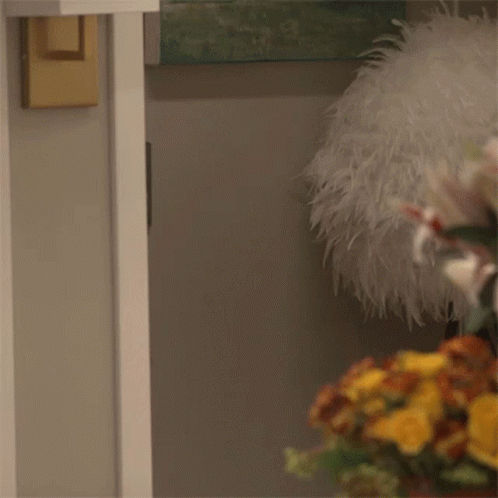
Dad. Are you sad that you got fired?
爸,你被炒了,会难过吗?
Are you sad that you......:简洁明了的情绪提问句型:“你因为……感到难过吗?”
🎁 可以套用结构:Are you [emotion] that [situation]?
- Are you mad that she left?
- Are you nervous about the test?
Mostly angry. But yeah. Maybe a little sad.
更多是生气。不过……也有点难过吧。
Mostly angry:“主要是生气”,用来回答上面的提问,不需要重复完整句。
🎁 可以套用结构:mostly + 情绪形容词
- Mostly tired.
- Mostly excited.
But yeah:轻微认同,语气上有点让步的感觉。表示 “嗯……是啦”、“也有一点吧”。
Maybe a little sad:非常柔和的表达方式,用 “maybe” 和 “a little” 来缓和情绪的强度。

继续阅读:





